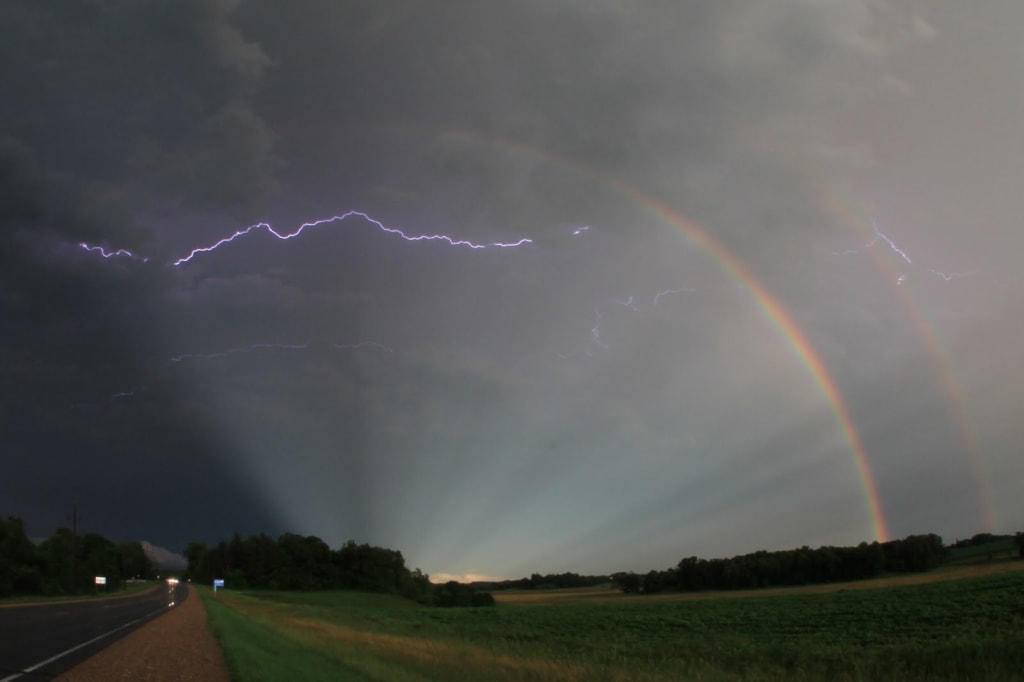What It's Really Like to Lose Your Parents
How I dealt with my loss, and how it changed the way I grew up, and what other people won't talk about.

Loss is, in no way, the same for everyone. My brother, on hearing about the loss of our mother, went immediately back to playing with LEGOs. Only months later did he process what had happened, and cry about it for the first time.
I, on the other hand, sat in the kitchen crying for the longest time, holding our old staff-lab cross, hoping that everyone was wrong and would leave me alone.
I barely even remember losing my dad. I was in year 2 and I never knew him the way many of my peers knew their dads. He lived in Ireland and I just didn't know him as well, because I had, from aged 3, lived with my maternal grandparents. But I hated knowing he wasn't there. It made me feel even more different and from such a young age, it has an impact on how your friends and other people see you.When you lose someone close to you, you're left with so many oddly vivid memories. I remember the small police officer, standing with me in the kitchen as I sat and cried. She hugged me when I cried that I had no one left. I remember putting on leg warmers and shorts to go and stay at a family friend's, despite it being the end of November. I remember seeing the calendar in the hallway.
I remember the night before, only being 11 and running around some indoor adventure place with everyone in my class.
It numbs you, your brain doesn't process the way it should. You try to be okay, but then your body starts betraying you, and you start crying without any indication that you'll ever stop.
This was all seven years ago. Just about seven and a half now, actually. The memories fade when it happens so young. You learn to rely on photographs. A video is a sacred memory, and the sound of voices sounds foreign and weird.
But you learn to live like that. You develop nostalgia, which is a strange feeling to put that word to when you're this young. Somehow, you learn to just sort of deal with the past and it feels unreal.
You get apologies all the time though. People assume your life is hard, and you're so strong and brave. While the sentiment is appreciated it just becomes patronizing. I don't want to be your pity case. I don't need to be strong. I still have days where I break down, cry, pull my hair out and punch walls because it's all so unfair. The days like that get further apart, but losing someone doesn't automatically make you stronger. That's the lie they tell you to make you feel like you will get stronger.
If it made you stronger, none of us would ever cry. We'd all get thicker skinned and learn to deal with things in a tough and to-the-point manner. If anything, losing my parents (mum, especially) has made me anxious. I fear being abandoned. I don't want to be alone for the rest of my life, but I don't want to feel the loss I felt again. I am numb to other people's pain. Empathising when someone has a loss of trauma can be hard, because I've been there and done that and I can't get my head around why it's really that bad. It makes you harder.
It makes you lonely. Being alone in a room full of people reaches full meaning on Mothers Day. Why did I have to lose my mum when all of these other people haven't even touched what I have been through. Why did I have to lose my sister, my dog, my grievance councillor (who is meant to get you through it?!) Multiple losses definitely take their toll on you. Regardless of who it is. Or what. Hell, losing a goldfish could help you have a week long breakdown and cry. AND despite all this, I make wisecracks every 2 seconds. I joke about being an orphan, joke about being Oliver Twist, little Annie and any other famous fictional orphan I can think of on the spot. Because laughing helps, despite the cliche. I survived because all I could do was make jokes.
It made people around me laugh, while making me laugh too. Don't get me wrong, losing your parents is shit. But laughing makes you happy, even for a brief moment. My stupid jokes aren't a reflection of me not caring — if anything, it's probably bad that I can't let go.
But it helped me come through it. And it will keep helping me, along with therapy and anti-depressants.
The take from here is that death affects everyone in different and dramatic ways. No two people will ever deal with it the same way, but the important thing is to learn to grow, accept, move on and seek the help you need.
About the Creator
Casey Rose
The somehow put together words of a depressed 20 year old







Comments
There are no comments for this story
Be the first to respond and start the conversation.